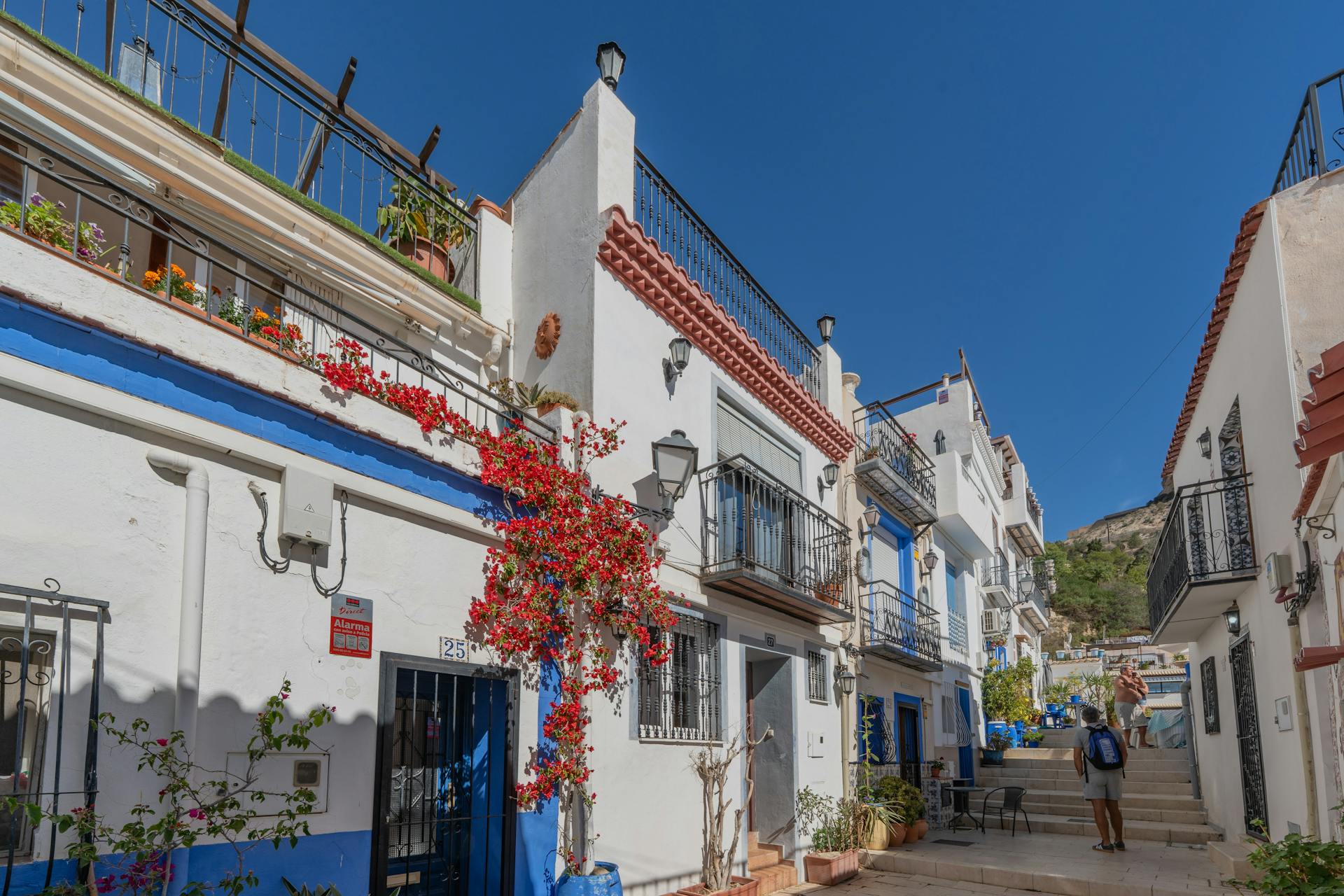Spain Digital Nomad Guide 2026
Spain has quietly become one of the strongest digital-nomad destinations in the world. And honestly, it’s not hard to see why. You get sunshine almost every day, food that feels like a warm hug, cities packed with art and culture, and a remote-work infrastructure that’s surprisingly reliable. Whether you’re fresh into the nomad life or already on your fourth passport renewal, Spain tends to pull people back again and again.
But here’s the thing: Spain isn’t just “Barcelona and beaches.” It’s a patchwork of wildly different regions — mountains, islands, rural villages, modern cities, sleepy surf towns — and each one has a distinct vibe and cost profile. So choosing where to base yourself isn’t trivial, especially if you want a place where you can work productively, meet good people, and still explore without burning your entire budget.
Let’s break it down properly.
🌞 Why Spain Works So Well for Digital Nomads
(even if you’re brand new to the lifestyle)
If you’ve been browsing nomad forums, you’ve probably seen Spain on all the “Best Places to Work Remotely” lists — and that’s not accidental. Spain hits the sweet spot between practicality and lifestyle in a way few countries manage.
Here’s the real-world version of what makes it work:
1. Sunshine and good weather (with some regional surprises)
Spain has one of Europe’s best climates, but the experience changes depending on where you land.
- Barcelona & Valencia → sunny, warm, perfect for beach lovers
- Madrid → hot summers, crisp winters, tons of city energy
- Andalusia (Malaga, Seville, Cadiz) → long summers, mild winters
- The Canary Islands → year-round spring weather, the holy grail for winter working
- Northern Spain (Bilbao, Galicia) → greener, cooler, more rain, more nature
Nomads who struggle with winter often head straight to Tenerife or Gran Canaria thanks to their consistent 22–27°C range all year.
2. Affordable compared to Western Europe
Let me explain — prices have gone up, especially in Barcelona and Madrid. But compared to Portugal, Italy, or France, Spain still gives you a high quality of life for less money.
- Groceries → cheap
- Eating out → cheap
- Public transport → cheap
- Rent → depends heavily on the city, but manageable if you avoid peak summers
3. A huge expat & nomad community
Spain is one of the easiest places in Europe to make friends.
You’ll find:
- weekly nomad meetups in Barcelona, Valencia, and Madrid
- WhatsApp and Facebook groups for every niche
- coworking spaces offering community-driven events
- dozens of colivings (especially in the islands and rural areas)
Spain’s social culture — late dinners, plazas full of people, long weekends — makes it almost impossible not to meet others.
4. Infrastructure that just works
Good Wi-Fi.
Massive coworking scene.
Fast fiber in nearly every urban area.
Cheap, efficient metro systems in major cities.
And the trains? A gift.
Spain’s high-speed AVE trains connect cities so well that many nomads skip renting cars entirely.
5. Culture, food, and lifestyle that makes you slow down
Tapas walks.
Ocean afternoons.
Long conversations over coffee.
Music, festivals, siestas, Sunday markets…
Spain has mastered the art of enjoying life.
It’s the exact balance most digital nomads crave after burning out in high-intensity hubs like Bali or Lisbon.
🥘 Best Cities in Spain for Digital Nomads
Spain isn’t one destination — it’s many. Each city offers its own ecosystem, community, and lifestyle.
Here’s what the research + real nomad feedback consistently shows.
1. Barcelona
Vibe: Creative, international, beachside, energetic, sometimes chaotic
Why nomads love it:
- Massive coworking and coliving scene
- Beaches + city life combined
- Strong expat community
- Tons of day trips (Costa Brava, Montserrat, Sitges)
Challenges:
- Summer crowds
- Higher rent
- Housing scams are common — verify everything
Barcelona appeals to nomads who thrive around art, design, architecture, and constant social energy.
2. Valencia
Vibe: Chill, sunshine-heavy, affordable, authentic
Why it’s a favorite:
- Lower prices compared to Barcelona
- High quality of life
- Beaches + park-filled old town
- One of Spain’s fastest-growing nomad communities
Valencia is often described as “the perfect balance” — safe, beautiful, and easy to settle into without stress.
3. Madrid
Vibe: Cultural powerhouse, big-city rhythm, food heaven
Why it’s great for digital nomads:
- Amazing coworking options
- Strong public transport
- Fast internet everywhere
- Museums, galleries, endless nightlife
Nomads who want a cosmopolitan base with serious food and culture usually land here.
4. Malaga
Vibe: Warm, affordable, coastal, super friendly
Highlights:
- A buzzing nomad scene (especially in winter)
- Affordable rent
- Coastal lifestyle
- Close to other Andalusian gems
Malaga has become one of Spain’s most underrated hubs for long-term nomads.
5. The Canary Islands (Tenerife, Gran Canaria, Fuerteventura, Lanzarote)
Vibe: Endless summer + coworking paradise
Perfect for:
- surfers
- nature-seekers
- sun-chasers
- nomads escaping European winters
Las Palmas (Gran Canaria) is one of Europe’s top 3 winter nomad hubs.
🛂 Spain’s Digital Nomad Visa (What You Actually Need to Know)
Spain officially launched its Digital Nomad Visa under the Startup Law. While immigration lawyers like Nodisea and Jobbatical are the best sources for requirements, here’s the distilled version:
Eligibility:
- Remote workers for a foreign company OR
- Freelancers with foreign clients
- Proof of at least 3 months of remote work history
Income requirement:
- Around €2,300/month (varies slightly)
Validity:
- 12 months → extendable up to 5 years
Tax perks:
- Reduced tax rate in some cases (Beckham Law conditions apply — use a tax advisor)
Family:
- Dependents can join
Spain’s visa is one of Europe’s most long-term-friendly options.
🌐 Internet & Work Setup
Average fiber speeds: 600–1,000 Mbps
Coffee shops: Everywhere
Coworking:
- Barcelona → Aticco, Coco Coffice, OneCowork
- Madrid → Impact Hub, Utopicus, Urban Campus
- Valencia → Wayco, Vortex Coworking
- Canary Islands → Surf Office, The House, CoworkingC
Mobile:
5G is available in all major cities, with speeds around 150–400 Mbps.
🧳 Best Things to Do While Living in Spain (Nomad Edition)
Just a few essentials:
- Explore Gaudí’s masterpieces in Barcelona
- Picnic in Retiro Park (Madrid)
- Wander the Mediterranean coastline
- Learn basic Spanish phrases to feel more connected
- Eat tapas in Granada (still affordable!)
- Hike Teide in Tenerife
- Join local nomad meetups (they’re surprisingly active)
Spain blends culture, nature, music, and social energy in a way that feels effortless.
🧠 Challenges to Be Aware Of
Spain is amazing — but no place is perfect.
- Bureaucracy can be slow
- Siesta hours mean some services close mid-afternoon
- Housing is competitive in big cities
- Summers are hot in Andalusia and Madrid
- English isn’t widely spoken in rural areas
But none of these are dealbreakers for most nomads.
⭐ Who Spain Is Perfect For
- First-time digital nomads
- Remote workers who want community
- Creatives who need inspiration
- Sunseekers
- Long-term slow travelers
- Nomads tired of Southeast Asian hubs
- Anyone craving better work–life balance
If you’re someone who likes a mix of culture, food, community, and sunshine—Spain fits like a glove.
📌 Final Takeaway
Spain isn’t just a good digital-nomad destination — it’s one of the world’s best long-term hubs. With its visa, community, infrastructure, food, weather, and laid-back culture, it’s the kind of place where people arrive for one month… and stay for six.
If you need a country that supports productivity and gives you a real life outside of work, Spain should absolutely be on your list.
Digital Nomad Visa
Spain Digital Nomad Visa
✓ Valid for up to 12 months (extendable to 5 years)
✓ Income requirement: ~€2,300/month
✓ Remote or freelance workers eligible
✓ Family members can join
(Always verify current requirements at Nodisea, Spain Immigration Portal, or Jobbatical.)



